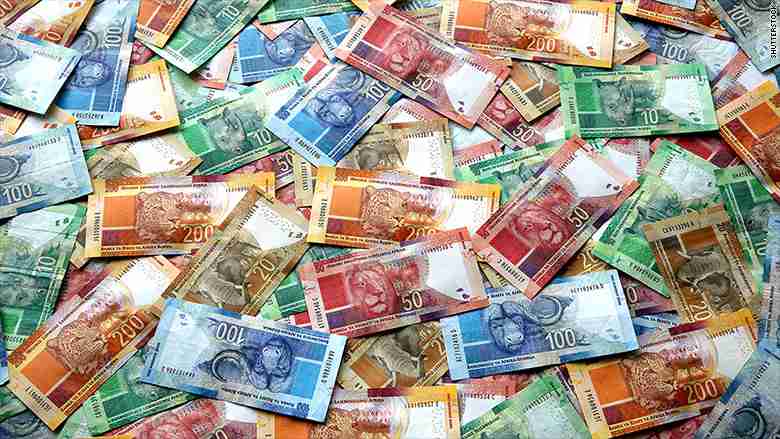Without enough money, I cannot support my family, pay my accounts or spoil myself with something new. So how can I get more money? Most people would say it is just a matter of earning more, but in reality how you work with the money you already have, makes the biggest difference to your financial situation. Spending your money wisely is the way to increase your personal wealth. So how do I do this?
Working responsibly with the money you already have
- Accept responsibility for your own finances. If you don’t look after your own financial well-being, nobody else will. Remember, you should be in charge of your financial situation – your financial situation should not be in charge of you!
- Live within your income. Spending more than you earn is a very bad idea and will return to bite you one day. Avoid bad debt (explained lower down).
- Prioritize your expenses into essential, recommended and nice-to-have expenses (explained lower down). First pay for the essential expenses, and if you have money left, pay for the recommended ones, and then, if you still have something left, pay for the nice-to-have ones.
- Compile a spending plan. This is a list of all your monthly expenses (prioritized as described above) with a certain portion of your monthly income allocated to each item on the list. This is your spending limit for each item. The total of all the allocated portions must be less than your total monthly income. You can get a copy of my example spending plan here.
- Keep track of your expenses. Check half-way into the month if you are still safely below the spending limit for that item (e.g. food). If you can already foresee that you will not make it by the end of the month, take some money away from another less important item in your spending plan, and add it to the spending limit of this item. Later this month, when you want to buy something that is part of the item for which the spending limit was reduced this month, you know you have to postpone buying it until next month. In this way your spending will remain within your income.
Prioritise your expenses
- Essential expenses: these are your most important expenses you need to plan for. This include essential (i.e. the minimum to make a living) food, clothing, accommodation, transport, debt payments, taxes, etc. These are obligations you have to honour. These expenses should be less than your monthly income. If not, you should cut down on those expenses you may legally reduce (food, clothing, etc.). Increase your debt payments if possible at all – this will allow you to get rid of your debt quicker. If you cannot keep these expenses within your income you should seek the help of a trusted advisor.
- Recommended expenses: these are expenses that are highly recommended for you to include in your spending plan. This includes saving or investing, insurance and tithing. Saving or investing will build your capital through the power of compound interest (explained lower down). This, in turn, which will help you to become financially independent. It will also help you to avoid debt and it will help make provision for a rainy day or your children’s education. You should try to save at least 10% of your income, preferably more. Insurance you buy should at least make provision for catastrophic events (explained lower down). Tithing will not only enable you to give to others but will ensure that you stay in control of money and not the other way around.
- Nice-to-have expenses: these are expenses that you have planned to pay from what is left from your income, after the essential and recommended expenses have been paid. If you have the margin, you can set a certain amount aside per month to take the family out for a meal, go on vacation, buy presents, etc. But you can only do this if you have the margin i.e. you have some money left after the more important expenses have been paid for.
Avoid bad debt
Good debt is when the return you earn on the investment you made with the money you have borrowed, is more than the interest you are paying on your loan. Bad debt are all other loans. Bad debt is a very expensive way of buying things that should have been bought in cash. Therefore, do not pay for consumables (like food or clothes) with borrowed money. Try not to borrow money for slowly depreciating assets (like your car or furniture) but, rather, save for it. Borrowing money to buy property could be good debt depending on whether you are able to get a better return than what the property will cost you. Plan to systematically rid your monthly expenses from bad debt payments.
The power of compound interest
When you invest money you earn a return on it. If you reinvest this return every time you earn it and do not spend it, next time you will earn a return, not only on the original amount invested, but also on the previous return that is now invested with it. If you keep on doing this, the return at the end of a long investment period will be substantially larger than if you withdrew the interim returns. The following is a simple example:
Two friends, Adam and Bruce, get exactly the same job after school. And for the next forty years their circumstances are exactly the same except for one difference: Adam immediately buys a car for R500 000 while Bruce buys one for only R200 000. Bruce invests the R300 000, he is not spending like Adam, at an annual interest rate of 10%. After four years they both trade their cars in for new ones and from here on their lives proceed exactly the same. Bruce has more than R13 000 000 more than Adam after 40 years! It gets even better if Bruce invested his money in something like equity and got, say, 15% return per year. He would end up with R80 000 000 more than Adam after 40 years! Obviously, you need to take the effect of inflation of 40 years into account, but the fact remains that Bruce will always be much better off than Adam.
The lesson? Start saving as early in your life as you can. Capital can always be built if you are willing to sacrifice the immediate pleasure of spending the money.
The most powerful force in the universe is compound interest
Albert Einstein
Active vs passive income
This is how you earn your money. One can have active (your time earns you money) and passive (your money earns you more money) income.
Active income is like working for a salary or having your own professional practice selling your consulting hours for a fee. You only earn income when you work. Because everyone only has 24 hours per day, you cannot earn more than a certain amount from your profession. Most people are solely dependent on an active income. When you are too old to work, your active income disappears and you will have to have a passive income to support you. If not, you will be dependent on the state or relatives which is not what you want.
Passive income is earning income from investments or your own business. You have invested your money in someone else’s or your own business. Now, that investment is earning you income in the form of dividends. The value of your investment could also grow over time. There is no limit on how big a return you can get on your investment. Such investments can also continue earning you money, even when you are retired, as they are not dependent on you spending the majority of your time to earn the money (even in your own business you can employ other to do the work). Most young people have to start earning by using an active income. Then, during their working years, they need to build a passive income source for retirement. The sooner this passive income source is capable of supporting you, the sooner you will have the freedom to work when and how you prefer. You will be financially independent. A good book to read on this subject is Rich Dad Poor Dad by Robert Kiyosaki.
In summary
By working wisely with the money you already have, you have more money to invest. This will make your money work for you and allow you to build a substantial nest egg through the power of compound interest.
Some other useful tips
- Leverage your ability to pay in cash. You can sometimes get an handsome discount when paying cash.
- Don’t buy impulsively. Don’t allow someone else to create a need for you and then buy it there and then. Take your time to evaluate if you really have such a need.
- Take time to plan and compare prices before you buy.
- Buy quality. By the time you have repaired or replaced an inferior item, it could have cost you much more than the quality one in terms of money, time wasted and frustration.
- Repair in stead of replace where practical
- Avoid signing surety where possible
- A working wife could be earning less than a thrifty wife!
- Have the right amount of insurance
Insurance
You need to have insurance for emergencies like
- Medical – you or one of your family becomes ill or injured in an accident. Specialized medical care is very expensive.
- Theft, fire, accident, etc. destroys your assets
- Death – you die and you have a wife and possibly children that are dependent on your income
The question is how much insurance do you need? On the one hand, you can make provision for basically anything that can go wrong and it will cost you a fortune. On the other hand you can decide not to insure at all, thus saving a lot of money, and in the process run huge risks that could financially ruin you. Every person has to decide for himself how much he should be insured for, making sure that he is at least covered for catastrophic events but without being paranoid. Try finding the balance between the risk you are taking and the cost of insuring against it.



